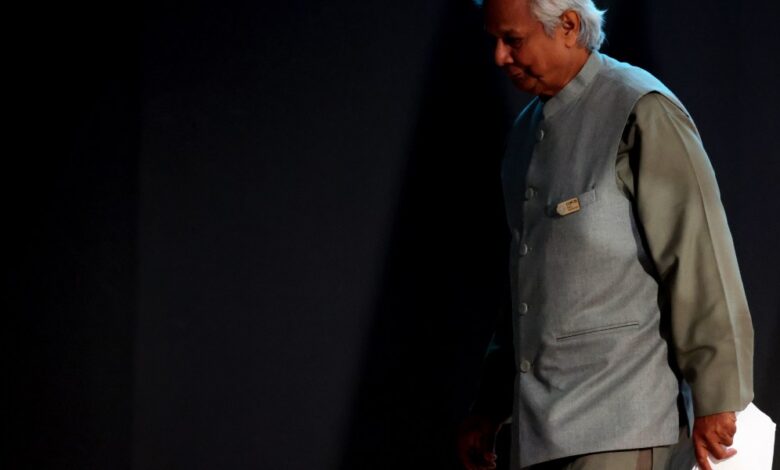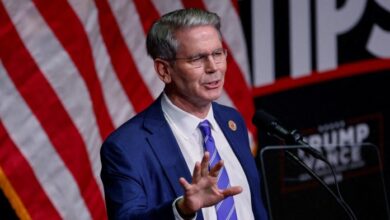Bangladesh chief Yunus criticizes COP29 bargaining for ‘humiliating’ climate funds


In the three months since becoming Bangladesh’s interim leader following a student-led revolution, Muhammad Yunus has endured political unrest, impatient calls for elections and floods. Floods wreaked havoc across this low-lying country.
Now the Nobel Peace Prize winner has been thrust into a row over money to help poorer countries deal with climate change – and he’s not happy about it.
The 84-year-old microfinance pioneer, who took over after ousting autocratic leader Sheikh Hasina in August, likened the row at the United Nations COP29 climate summit to a “fish market”.
“I think it’s humiliating when countries come and ask for money to repair…[the] problems that others cause them,” Yunus told AFP in an interview in Azerbaijan, where the talks are being held.
“Why do you have to bring us here to negotiate? You know the problem.”
Countries hope to reach an agreement at COP29 to increase funding for climate action in developing countries such as Bangladesh, the country least responsible for global warming but most are all affected.
Some want $1 trillion a year to cover the enormous costs of transitioning their economies to clean energy and adapting to increasingly erratic and extreme weather.
But rich countries – whose prosperity and associated carbon emissions have fueled global warming – do not want to commit such large sums and want others to participate.
The negotiations have reached a dead end, disappointing leaders of climate-troubled countries, who have left their seriously troubled populations behind for Baku.
Among them is Yunus, who says his riverside hometown has been devastated by six terrible floods—“each worse than the last”—in the short time since he took over.
Hundreds of thousands of people were forced to take emergency shelters during the floods, which also destroyed crops.
‘You figure it out’
Bangladesh is one of the world’s most vulnerable countries to climate change, with large areas made up of deltas where the Ganges and Brahmaputra rivers flow into the sea.
The country of 170 million people is especially at risk of devastating floods and cyclones—disasters that are only likely to accelerate as the planet continues to warm.
Yunus said it is “not a secret” that rich countries must help poorer ones adapt and that they should “figure out how much they need, not me.”
“This is not what we ask for out of your generosity. We ask because you are the cause of this problem,” he said bluntly.
Yunus said implementing a peaceful democratic transition and responding to floods was “difficult” enough, and adding a flight to Baku to tackle climate finance wouldn’t help either. .
Impatience over elections in Bangladesh has grown since Hasina was ousted, and the gray-haired technocrat said he shared concerns about peace and security in the country of 170 million people. .
A free and fair vote will take place as promised, he said, but the pace of democratic reform “will determine how quickly the election will take place.”
He did not give a date or timeline but said the caretaker management was hoping to build “consensus quickly”.
“We are an interim government, so our term must be as short as possible,” he said.




